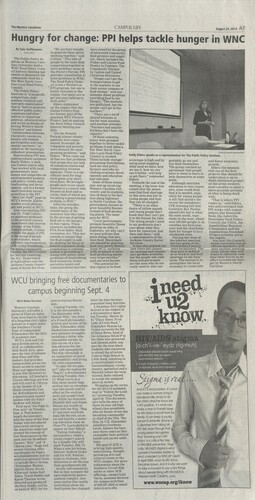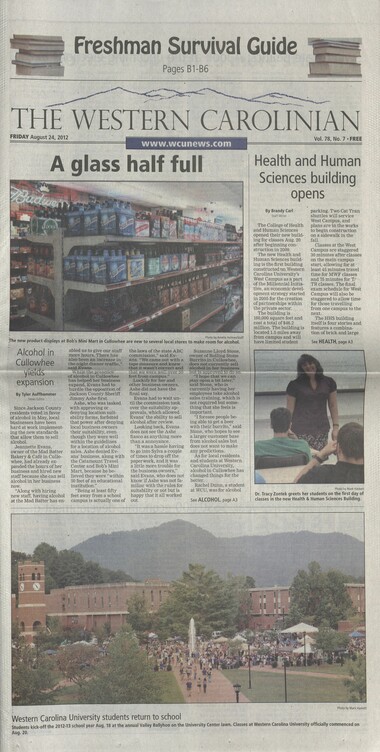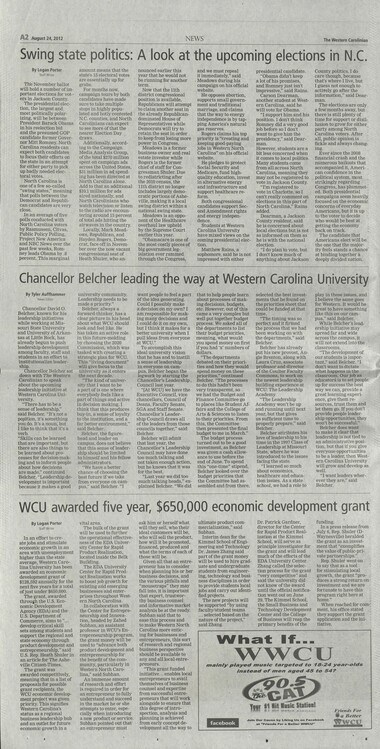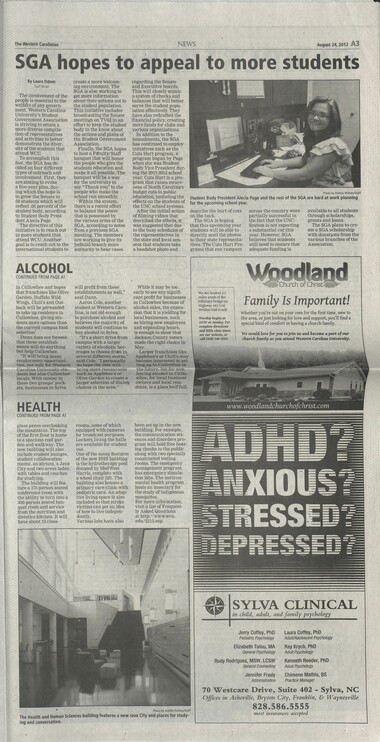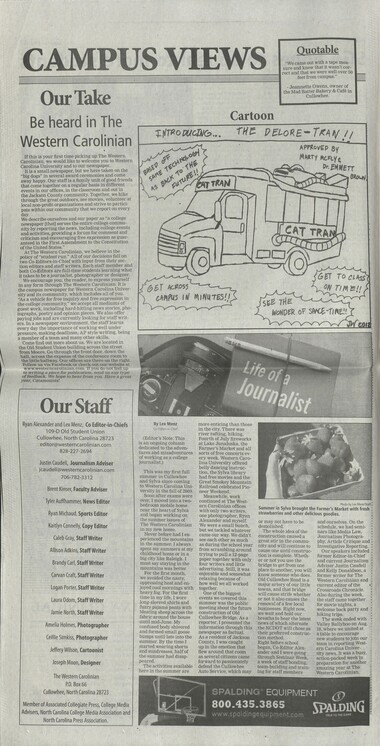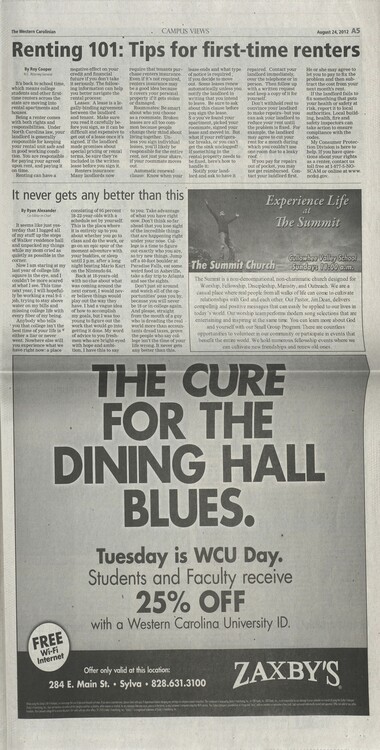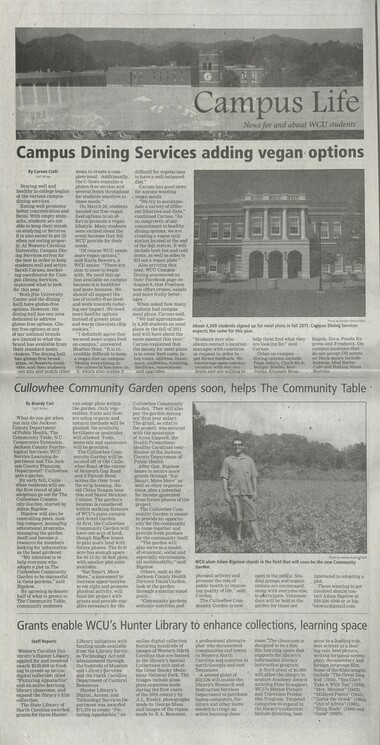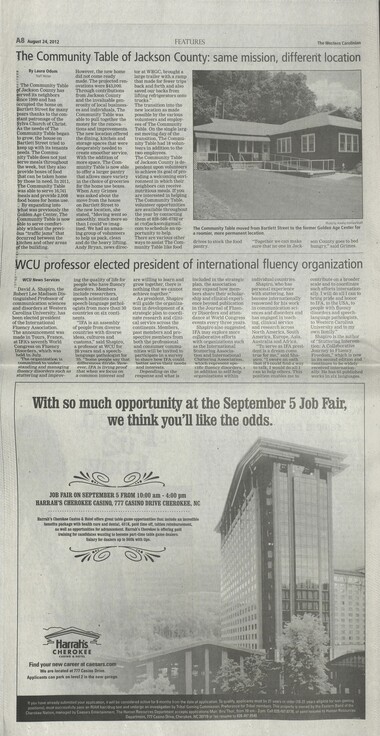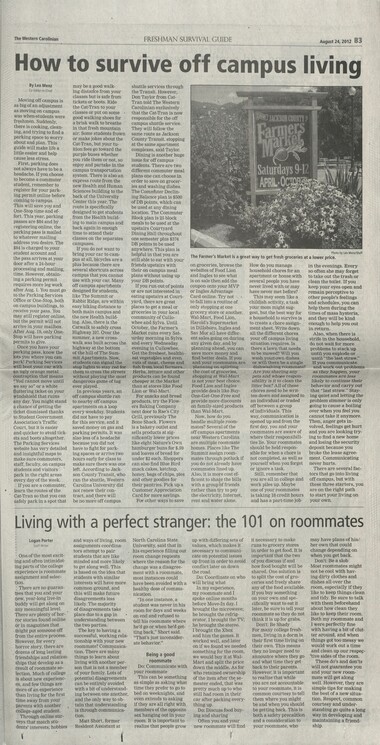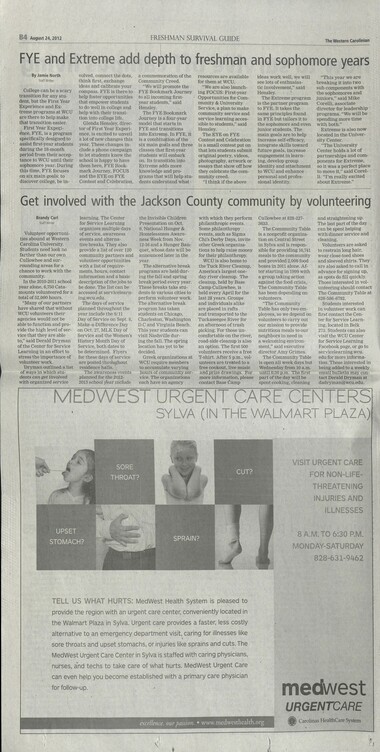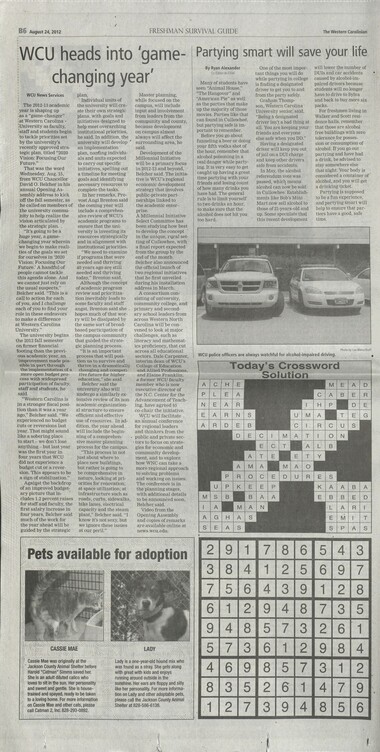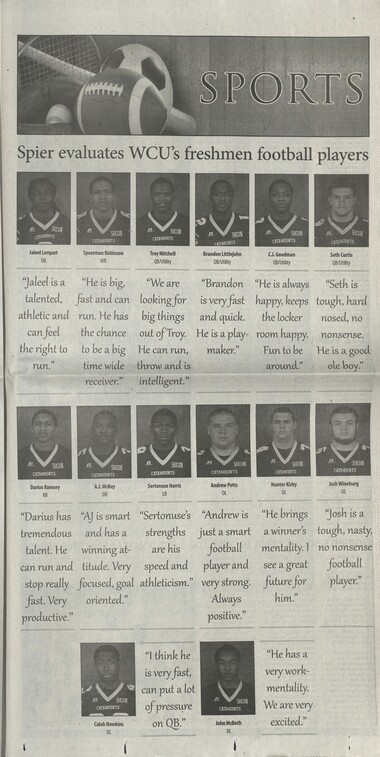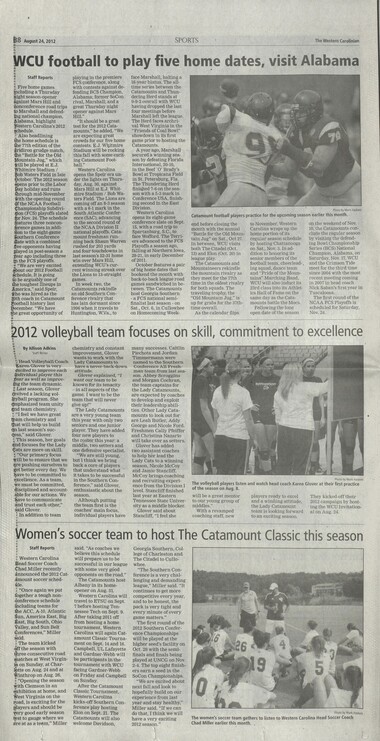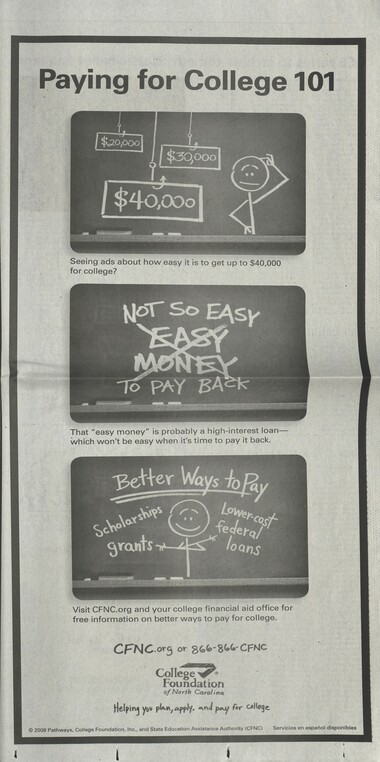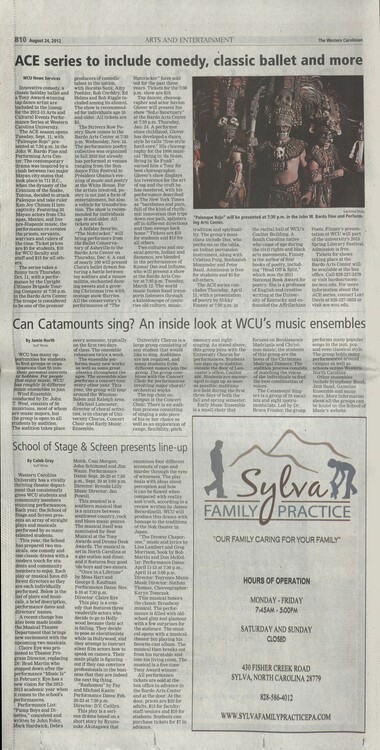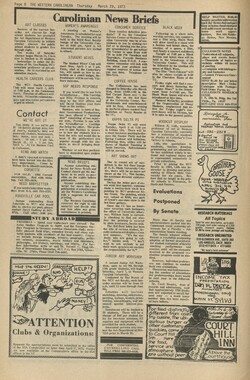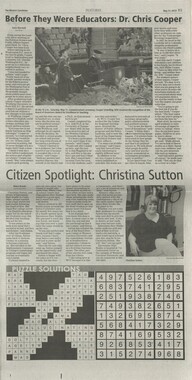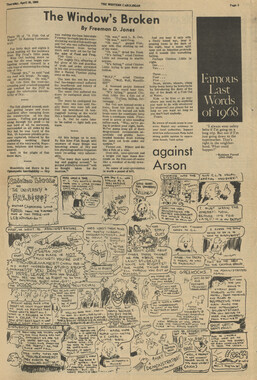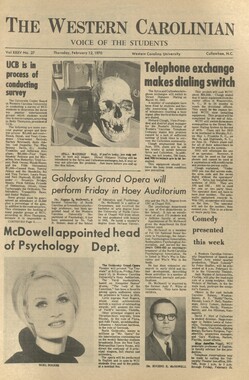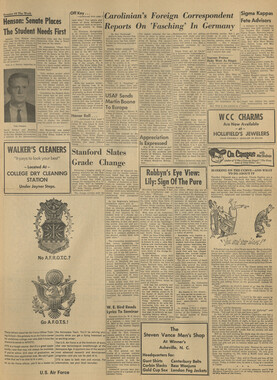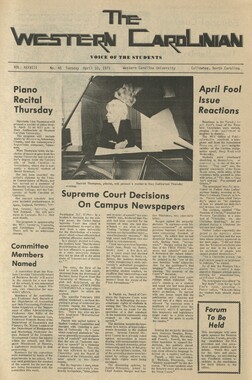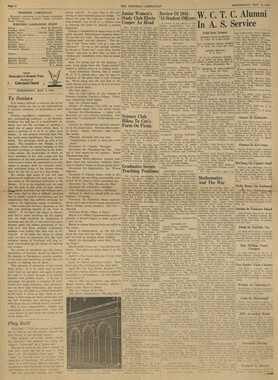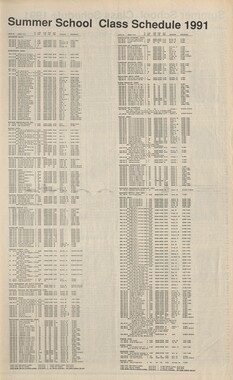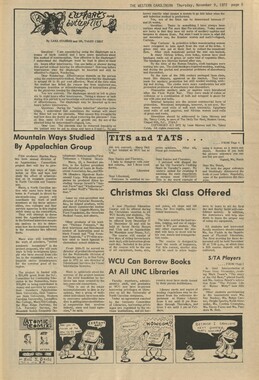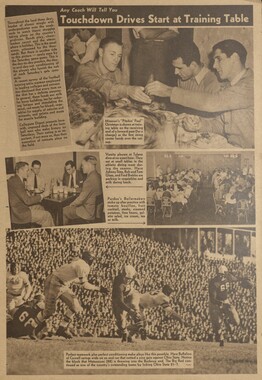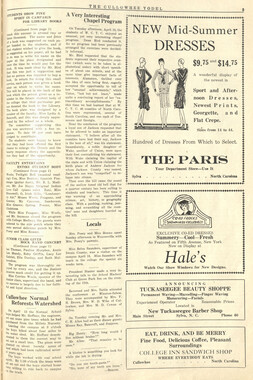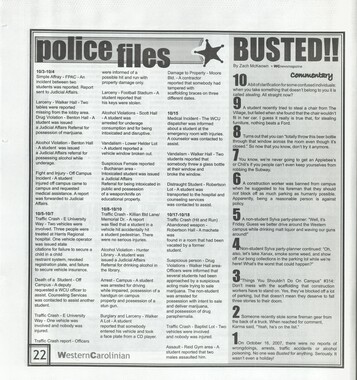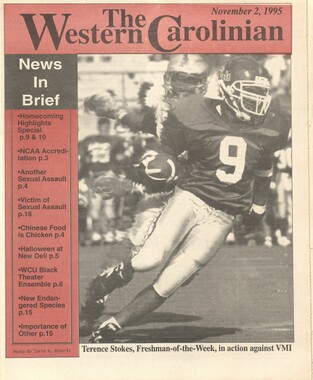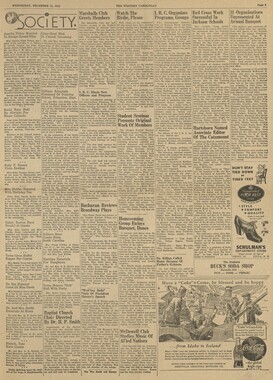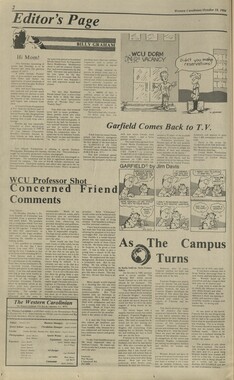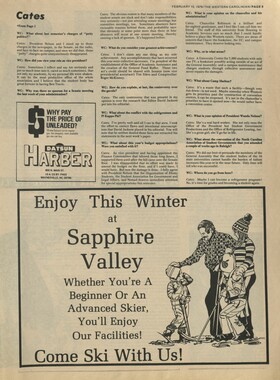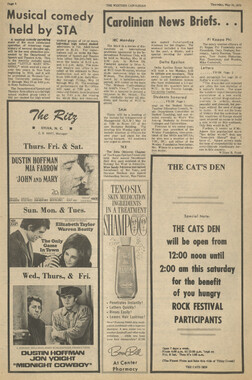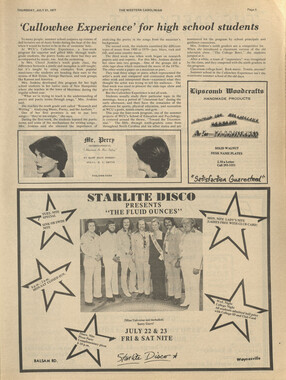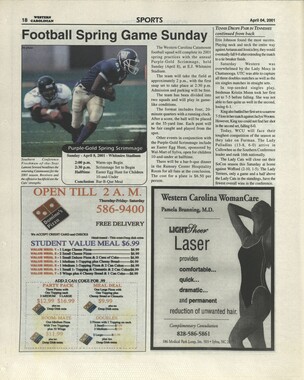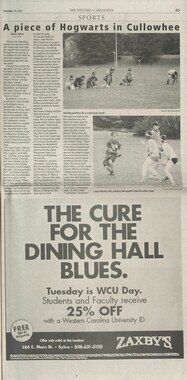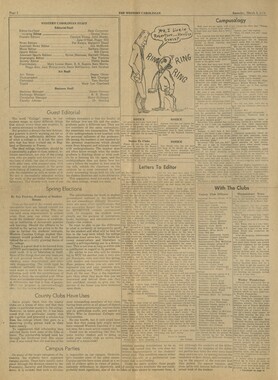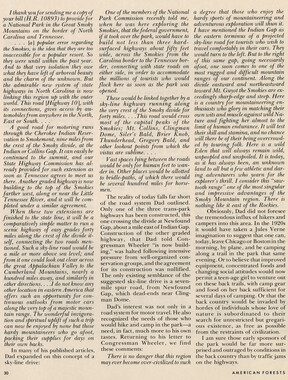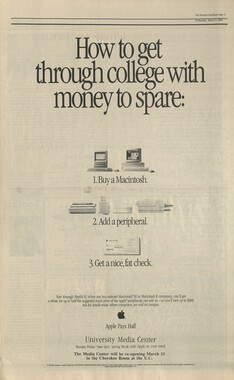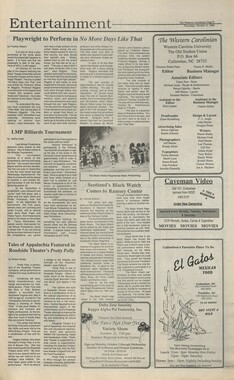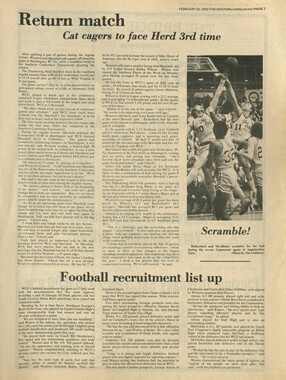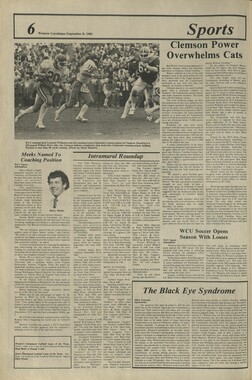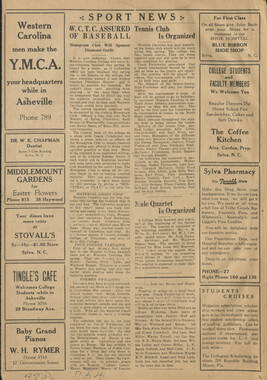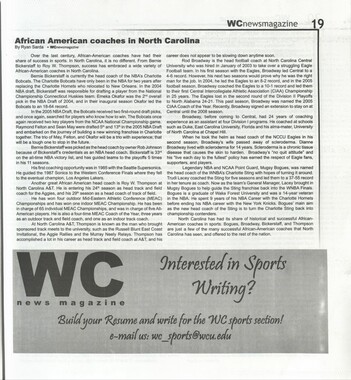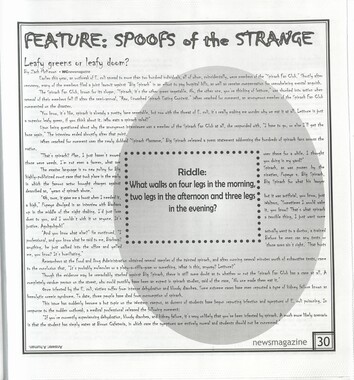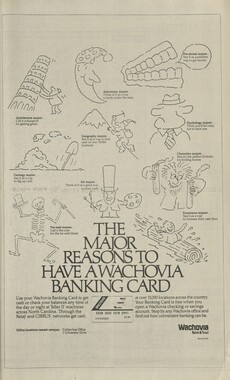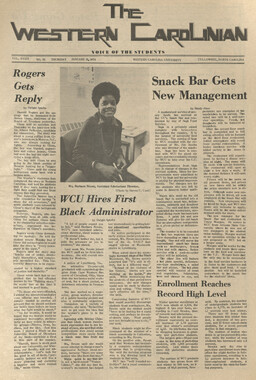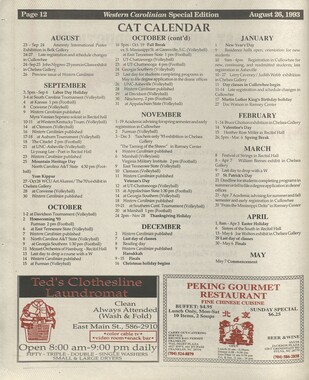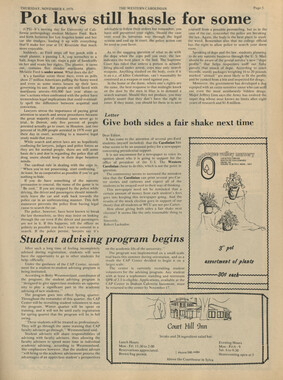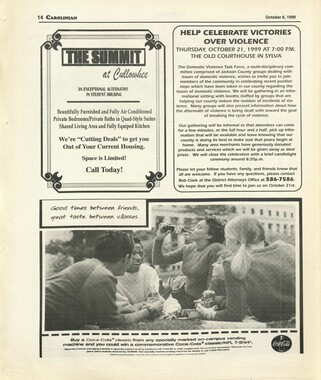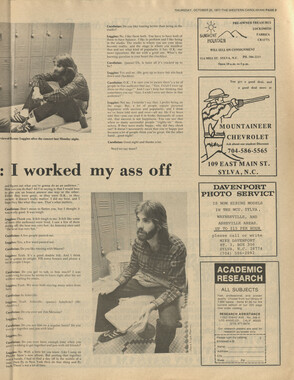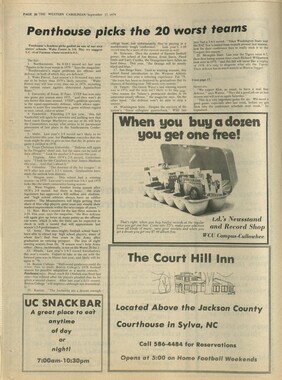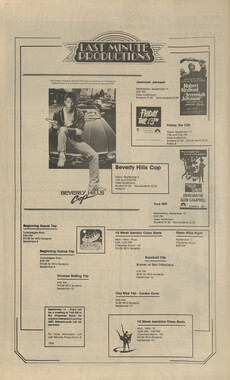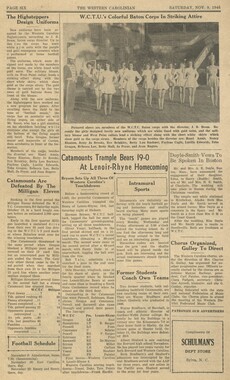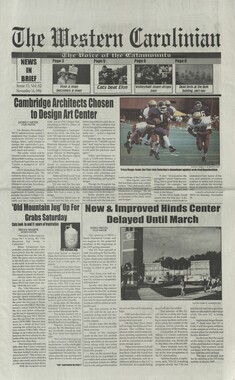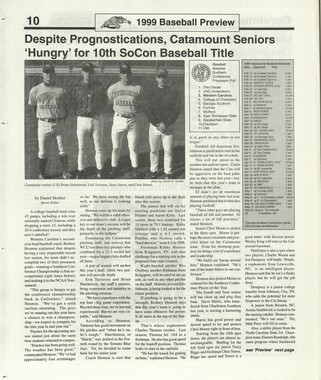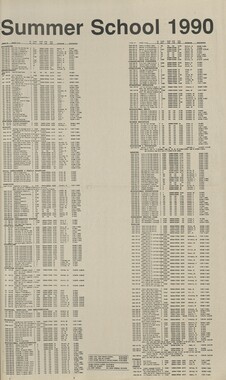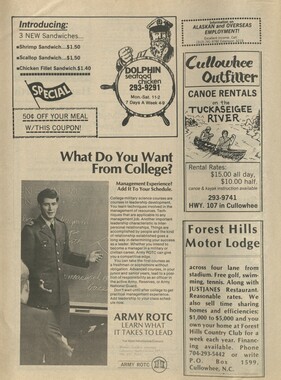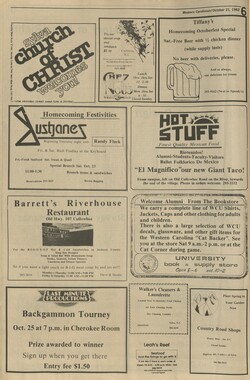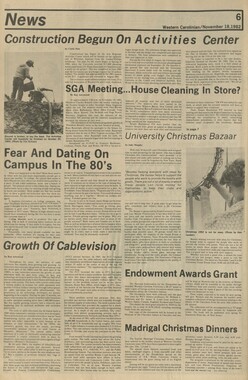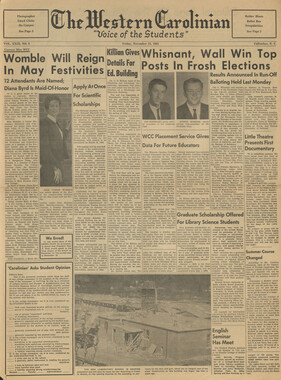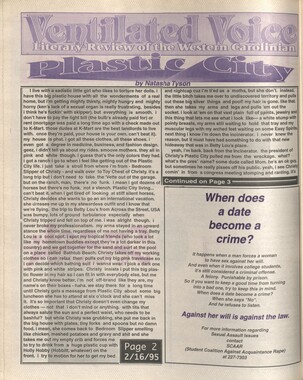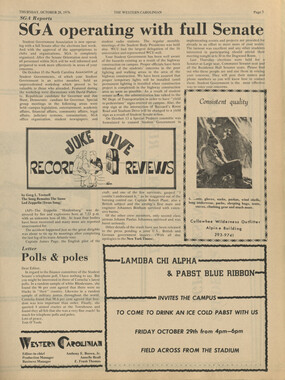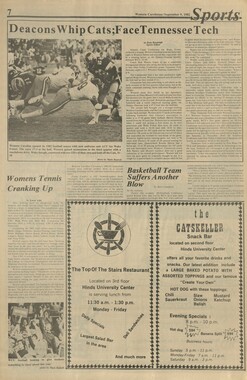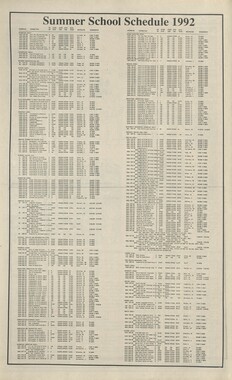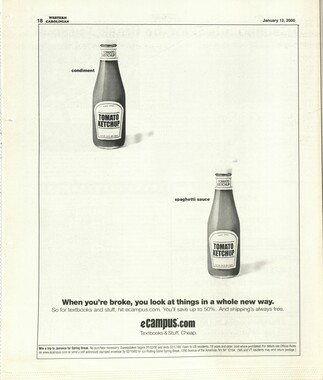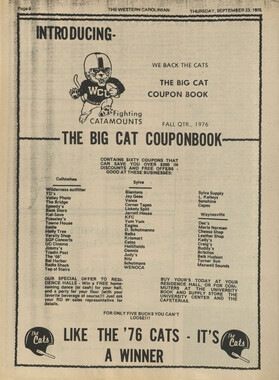Western Carolina University (21)
View all
- Canton Champion Fibre Company (2308)
- Cherokee Traditions (291)
- Civil War in Southern Appalachia (165)
- Craft Revival (1942)
- George Masa Collection (137)
- Great Smoky Mountains - A Park for America (3080)
- Highlights from Western Carolina University (422)
- Horace Kephart (998)
- Journeys Through Jackson (159)
- LGBTQIA+ Archive of Jackson County (89)
- Oral Histories of Western North Carolina (318)
- Picturing Appalachia (6617)
- Stories of Mountain Folk (413)
- Travel Western North Carolina (153)
- Western Carolina University Fine Art Museum Vitreograph Collection (129)
- Western Carolina University Herbarium (92)
- Western Carolina University: Making Memories (738)
- Western Carolina University Publications (2491)
- Western Carolina University Restricted Electronic Theses and Dissertations (146)
- Western North Carolina Regional Maps (71)
- World War II in Southern Appalachia (131)
University of North Carolina Asheville (6)
View all
- Allanstand Cottage Industries (62)
- Appalachian National Park Association (53)
- Bennett, Kelly, 1890-1974 (1463)
- Berry, Walter (76)
- Brasstown Carvers (40)
- Carver, George Washington, 1864?-1943 (26)
- Cathey, Joseph, 1803-1874 (1)
- Champion Fibre Company (233)
- Champion Paper and Fibre Company (297)
- Cherokee Indian Fair Association (16)
- Cherokee Language Program (22)
- Crowe, Amanda (40)
- Edmonston, Thomas Benton, 1842-1907 (7)
- Ensley, A. L. (Abraham Lincoln), 1865-1948 (275)
- Fromer, Irving Rhodes, 1913-1994 (70)
- George Butz (BFS 1907) (46)
- Goodrich, Frances Louisa (120)
- Grant, George Alexander, 1891-1964 (96)
- Heard, Marian Gladys (60)
- Kephart, Calvin, 1883-1969 (15)
- Kephart, Horace, 1862-1931 (313)
- Kephart, Laura, 1862-1954 (91)
- Laney, Gideon Thomas, 1889-1976 (439)
- Masa, George, 1881-1933 (61)
- McElhinney, William Julian, 1896-1953 (44)
- Niggli, Josephina, 1910-1983 (10)
- North Carolina Park Commission (105)
- Osborne, Kezia Stradley (9)
- Owens, Samuel Robert, 1918-1995 (11)
- Penland Weavers and Potters (36)
- Roberts, Vivienne (15)
- Roth, Albert, 1890-1974 (142)
- Schenck, Carl Alwin, 1868-1955 (1)
- Sherrill's Photography Studio (2565)
- Southern Highland Handicraft Guild (127)
- Southern Highlanders, Inc. (71)
- Stalcup, Jesse Bryson (46)
- Stearns, I. K. (213)
- Thompson, James Edward, 1880-1976 (226)
- United States. Indian Arts and Crafts Board (130)
- USFS (683)
- Vance, Zebulon Baird, 1830-1894 (1)
- Weaver, Zebulon, 1872-1948 (58)
- Western Carolina College (230)
- Western Carolina Teachers College (282)
- Western Carolina University (2008)
- Western Carolina University. Mountain Heritage Center (18)
- Whitman, Walt, 1819-1892 (10)
- Wilburn, Hiram Coleman, 1880-1967 (73)
- Williams, Isadora (3)
- Cain, Doreyl Ammons (0)
- Crittenden, Lorraine (0)
- Rhodes, Judy (0)
- Smith, Edward Clark (0)
- Appalachian Region, Southern (3032)
- Asheville (N.C.) (1945)
- Avery County (N.C.) (26)
- Blount County (Tenn.) (195)
- Buncombe County (N.C.) (1680)
- Cherokee County (N.C.) (283)
- Clay County (N.C.) (556)
- Graham County (N.C.) (238)
- Great Smoky Mountains National Park (N.C. and Tenn.) (535)
- Haywood County (N.C.) (3573)
- Henderson County (N.C.) (70)
- Jackson County (N.C.) (4925)
- Knox County (Tenn.) (35)
- Knoxville (Tenn.) (13)
- Lake Santeetlah (N.C.) (10)
- Macon County (N.C.) (421)
- Madison County (N.C.) (216)
- McDowell County (N.C.) (39)
- Mitchell County (N.C.) (135)
- Polk County (N.C.) (35)
- Qualla Boundary (982)
- Rutherford County (N.C.) (78)
- Swain County (N.C.) (2185)
- Transylvania County (N.C.) (270)
- Watauga County (N.C.) (12)
- Waynesville (N.C.) (86)
- Yancey County (N.C.) (72)
- Aerial Photographs (3)
- Aerial Views (60)
- Albums (books) (4)
- Articles (1)
- Artifacts (object Genre) (228)
- Bibliographies (1)
- Biography (general Genre) (2)
- Cards (information Artifacts) (38)
- Clippings (information Artifacts) (193)
- Copybooks (instructional Materials) (3)
- Crafts (art Genres) (622)
- Depictions (visual Works) (21)
- Design Drawings (1)
- Digital Moving Image Formats (2)
- Drawings (visual Works) (185)
- Envelopes (115)
- Exhibitions (events) (1)
- Facsimiles (reproductions) (1)
- Fiction (general Genre) (4)
- Financial Records (12)
- Fliers (printed Matter) (67)
- Glass Plate Negatives (381)
- Guidebooks (2)
- Internegatives (10)
- Interviews (823)
- Land Surveys (102)
- Letters (correspondence) (1070)
- Manuscripts (documents) (618)
- Maps (documents) (177)
- Memorandums (25)
- Minutes (administrative Records) (59)
- Negatives (photographs) (6090)
- Newsletters (1290)
- Newspapers (2)
- Notebooks (8)
- Occupation Currency (1)
- Paintings (visual Works) (1)
- Pen And Ink Drawings (1)
- Periodicals (194)
- Personal Narratives (10)
- Photographs (12977)
- Plans (maps) (1)
- Poetry (6)
- Portraits (4568)
- Postcards (329)
- Programs (documents) (181)
- Publications (documents) (2444)
- Questionnaires (65)
- Relief Prints (26)
- Sayings (literary Genre) (1)
- Scrapbooks (282)
- Sheet Music (2)
- Slides (photographs) (402)
- Songs (musical Compositions) (2)
- Sound Recordings (802)
- Specimens (92)
- Speeches (documents) (18)
- Tintypes (photographs) (8)
- Transcripts (329)
- Text Messages (0)
- A.L. Ensley Collection (275)
- Appalachian Industrial School Records (7)
- Appalachian National Park Association Records (336)
- Axley-Meroney Collection (2)
- Bayard Wootten Photograph Collection (20)
- Bethel Rural Community Organization Collection (7)
- Blumer Collection (5)
- C.W. Slagle Collection (20)
- Canton Area Historical Museum (2110)
- Carlos C. Campbell Collection (462)
- Cataloochee History Project (64)
- Cherokee Studies Collection (4)
- Daisy Dame Photograph Album (5)
- Daniel Boone VI Collection (1)
- Doris Ulmann Photograph Collection (112)
- Elizabeth H. Lasley Collection (1)
- Elizabeth Woolworth Szold Fleharty Collection (4)
- Frank Fry Collection (95)
- George Masa Collection (173)
- Gideon Laney Collection (452)
- Hazel Scarborough Collection (2)
- Hiram C. Wilburn Papers (28)
- Historic Photographs Collection (236)
- Horace Kephart Collection (861)
- Humbard Collection (33)
- Hunter and Weaver Families Collection (1)
- I. D. Blumenthal Collection (4)
- Isadora Williams Collection (4)
- Jesse Bryson Stalcup Collection (47)
- Jim Thompson Collection (224)
- John B. Battle Collection (7)
- John C. Campbell Folk School Records (80)
- John Parris Collection (6)
- Judaculla Rock project (2)
- Kelly Bennett Collection (1482)
- Love Family Papers (11)
- Major Wiley Parris Civil War Letters (3)
- Map Collection (12)
- McFee-Misemer Civil War Letters (34)
- Mountain Heritage Center Collection (4)
- Norburn - Robertson - Thomson Families Collection (44)
- Pauline Hood Collection (7)
- Pre-Guild Collection (2)
- Qualla Arts and Crafts Mutual Collection (12)
- R.A. Romanes Collection (681)
- Rosser H. Taylor Collection (1)
- Samuel Robert Owens Collection (94)
- Sara Madison Collection (144)
- Sherrill Studio Photo Collection (2558)
- Smoky Mountains Hiking Club Collection (616)
- Stories of Mountain Folk - Radio Programs (374)
- The Reporter, Western Carolina University (510)
- Venoy and Elizabeth Reed Collection (16)
- WCU Gender and Sexuality Oral History Project (36)
- WCU Mountain Heritage Center Oral Histories (25)
- WCU Oral History Collection - Mountain People, Mountain Lives (71)
- WCU Students Newspapers Collection (1923)
- Western North Carolina Tomorrow Black Oral History Project (69)
- William Williams Stringfield Collection (2)
- Zebulon Weaver Collection (109)
- African Americans (390)
- Appalachian Trail (35)
- Artisans (521)
- Cherokee art (84)
- Cherokee artists -- North Carolina (10)
- Cherokee language (21)
- Cherokee pottery (101)
- Cherokee women (208)
- Church buildings (190)
- Civilian Conservation Corps (U.S.) (111)
- College student newspapers and periodicals (2012)
- Dams (108)
- Dance (1023)
- Education (222)
- Floods (63)
- Folk music (1015)
- Forced removal, 1813-1903 (2)
- Forest conservation (220)
- Forests and forestry (1198)
- Gender nonconformity (4)
- Great Smoky Mountains National Park (N.C. and Tenn.) (181)
- Hunting (47)
- Landscape photography (25)
- Logging (122)
- Maps (83)
- Mines and mineral resources (9)
- North Carolina -- Maps (18)
- Paper industry (38)
- Postcards (255)
- Pottery (135)
- Railroad trains (72)
- Rural electrification -- North Carolina, Western (3)
- School integration -- Southern States (2)
- Segregation -- North Carolina, Western (5)
- Slavery (5)
- Sports (452)
- Storytelling (243)
- Waterfalls -- Great Smoky Mountains (N.C. and Tenn.) (66)
- Weaving -- Appalachian Region, Southern (280)
- Wood-carving -- Appalachian Region, Southern (328)
- World War, 1939-1945 (174)
Western Carolinian Volume 78 Number 07 (08)
Item
Item’s are ‘child’ level descriptions to ‘parent’ objects, (e.g. one page of a whole book).
-
-
The Western Carolinian CAMPUS LIFE August 24,2012 Ad Hungry for change: PPI helps tackle hunger | in WNC By Tyler Auffhammer News Editor The Public Policy In- stitute at Western Caro- lina University held a _ WNC Food Policy Coun- cil Interest Meeting last month to determine the community need for a Far West North Caro- lina Local Food Policy Council. The Public Policy Institute is a nonprofit, nonpartisan, inde- pendent research and outreach organization that is here to generate effective public policy responses and alter- _ natives to important political, administrative and social problems af- fecting Western North Carolina and fosters collaboration between University resources, faculty and student participation and com- munity partners, as stated on the meetings slideshow presentation. Representing PPI was undergraduate assistant Emily Elders, a Jack- son County native who _ has worked with local governments, busi- nesses and nonprofits on environmental projects. and policy, events and. fundraising and devel- opment, and is a former small business owner, according to the PPI Meet the Staff page on _WCUs website. Elders studies social philoso- phy and policy at WCU. _ Also representing PPI was Dr. Todd Collins, an assistant professor in the political science department and interim director of the Public Policy Institute. Collins relayed the goals of PPI to the group of people - Inattendance, which included representatives of MANNA FoodBank, the Sylva Community Garden, the WCU Center | for Service Learning, the N.C. Department of Agriculture and the Jackson County Depart- ment of Social Services. We are here tonight to generate ideas about working together, said Collins. This idea of people in the same field cooperating together to solve problems arose at the Poverty Forum, PPI provides consultation to solve problems in WNC. The Food Policy Coun- , cilis: not a Western or: * PPI program, but one to better everyone in the region. Our goals are to get you guys talking to each other. Elders elaborated on the impact that the Global Poverty Proj- ect Forum, part of the yearlong WCU Poverty Project, had on making the Food Policy Council Interest Meeting pos- sible. {At the Poverty Forum] almost twenty agencies were repre- sented, Economic de- velopment and poverty were deemed the most pressing problems, said Elders. What came out of that are that problems ' that people face are lack . of communications and competition between agencies. There is a sig- nificant need for long- term plans over short- term fixes. We brought people here to see about . interest in a council that focuses on food and se- curity, both of which are becoming a generational problem in WNC. After the introduc- tions, the group dis- cussed many of the concerns that they have in the process of getting food out to the hungry | in this region. These concerns included the FDA Food Safety Mod- ernization Act. This Act intends to ensure that the food supply is. safe by shifting the focus of federal regulators from responding to contami- . nation to preventing it. Along with policy, other problems of diminishing -food resources, trans- portation issues and ~ communication barriers were raised by the group of interested community food growers and suppli- ers, which included the Fishes and Loaves Food Pantry in Cashiers, The Community Kitchen in Canton and United Christian Ministries. People cant get the transportation to get to the markets to use their senior coupons or food stamps, said one attendee about problems providing food to the hungry. The markets are publicized, but the people cant get to.the markets. There are a lot of shared kitchens in the far west counties, said another attendee. Farmers.and smaller kitchens dont have the capacity. Of these concerns, many were grouped together to better tackle problems if and when a Far West North Caro- lina Local Food Policy Council is created. These include storage/ processing/distribution, _ land use and policy, farmers and jobs (in- cluding economic devel- opment) and education and outreach. Some of these issues may end up involving Western Carolina Uni- versity and its students. One of these is the fact that along highways in North Carolina, the. government chooses to 'grow beautiful flowers instead of food-produc- ing plants. The same goes for WCU. Local governments promote beautiful flower planting on sids of . highways, yet why cant we pass policies that _ plant things that pro- duce food. Municipali- ties should be planting food over pretty flowers. Even WCU, working _ with Aramark to have food producing plants over crepe myrtles, said one area farmer. The potential for this region to be food WCU bringing free documentaries to | campus beginning Sept. 4 WCU News Services Western Carolina University will offer a series of films on topics from local food to the life of a forgotten civil rights, activist as it again hosts the Southern Circuit Tour of Independent Filmmakers for the 2012- , 13 academic year. | WCUs Arts and Cul- tural Events series, or ACE, in collaboration, with South Arts, spon- sors the tour of indepen- dent films and film- makers that provides communities across the South access to smaller films and opportunities to join film directors in discussion. All Southern Circuit offerings are free and will start at 7:30 p.m. in the theater of A.K. Hinds University Cen- ter. Refreshments and a question- -and-answer session with the films director willfollow. _ _ First up is Joe Papp in Five Acts on Tuesday, Sept. 4. This feature- length documentary tells the story of the New Yorker who introduced interracial casting to the American stage and created the concept of free Shakespeare in the park and the Broadway classics Hair and A Chorus Line. Stage and screen veterans offer- ing insights on Papps accomplishments and tu- multuous personal histo- ry include Meryl Streep, Christopher Walken, Martin Sheen, Kevin Kline and James Earl Jones. Tracie Holder and Karen Thorson wrote, directed and produced the film; Holder will be on hand at WCU for the i post-screening discus- sion. Coming Tuesday, Oct. 9, is the documentary | An Encounter with ~ Simone Weil, the story of a French philosopher, activist and mystic of the 1930s. Filmmaker Julia Haslett interweaves her own personal struggles, including a father who committed suicide, in this survey of a tire- less advocate for the poor and unemployed. The film ultimately is an exploration of moral _ responsibility and living life with compassion. Is your life too plas- tic? asks the tagline for Bag It, a documentary showing Tuesday, Nov. 13. What starts asa film about plastic bags evolves into an investiga- tion into plastic and its effect on the environ- ment and peoples bod- jes. While the directors Michelle Hill and Suzan Beraza are unable to tour with the film, Bag - It narrator and front man Jeb Berrier, an ac- tor and host for a morn- ing television show on Plum TV, is scheduled to appear on their behalf. . Hating Alabama, a documentary about a young couples search for a simpler life, will _ show Tuesday, Feb. 19. When a new job brings director Andrew Grace and his wife, Rashmi, home to Alabama, they determine to eat the way their grandparents did ' - locally and seasonally. But as they navigate the agro-industrial gastro- nomical complex, they soon realize that nearly everything about the food system has changed since the time farmers poole their families. A forgotten civil rights activist is the subject of -adocumentary show- ing Tuesday, March 19. In Daisy Bates: First Lady of Little Rock, filmmaker Sharon La Cruise unravels the life of Daisy Bates, head of the Arkansas NAACP in the 1950s who protected and showed public sup- port for the nine black students who registered to attend the all-white Central High School in Little Rock, resulting in a constitutional crisis. Unconventional, revolu- tionary, egotistical and a feminist before the term existed, Bates refused to accept her assigned place in society. Wrapping up the series for the 2012-13 academic year is Follow the Lead- er, screening Tuesday, April-16. This documen- tary tells the story of three 16-year-old high school class presidents who all dream of one day becoming commander in chief of the USA. The film, by U.K. filmmaker Jonathan Goodman Levitt, follows the boys over three years as they reconsider their political beliefs and career ambi- tions. The goal of ACE is to bring high-quality, entertaining, thought- provoking arts and cultural events to the WCU campus. For more information about the Southern Circuit film series or other ACE offerings, contact Lori Davis, assistant director for campus activities, at 828-227-3622 or email jedavis.wcu.edu. Emily Elders Geeks asa representative for The Public Policy Institute. sovereign is high and by - using asset mapping - what land we have, how we use it, how we can use it better - will help us get there, responded Elders. Towards the end of the meeting, a big issue was raised over the aware- ness that food shortage _in this area was low in young people and how that can be changed. There is an abun- dance of yellow squash and young people dont know that they cant put it in the freezer for later. The young people I meet in my profession dont care about what they have for tomorrow, just then and there, said a representative of the _ Jackson County Social Services. | It was also pointed out that there are classes on canning and commu- - nity gardens available, but the people who take | them and participate are the ones who do not really need it, who can probably go out and buy food themselves. The group reached an agreement that people have to want to learn to help themselves at some point. ! Although nutrition education is very expen- Sive, none could deny that it is needed, espe- cially for young people. A bill that mimics the recent the mandatory CPR training bill that Governor Bev Perdue signed into law is what the state needs, espe- cially in the west, where over 100,000 people in 16. counties are food inse- cure and the charitable fight for hunger is ina weakened state. . During the close of the interest meeting, _ the two goals of the | Food Policy Council were formulated. The first goal is defined as to work to end food shortage in the long-' term. The second is to strengthen the local economy to create jobs [a Ch. ive- eydz stig -MU 4, Unfavorable attitudes t ard people living _with HIV/AIDS, that can result in. - discriminatory behavior a 2 A mark of disgrace or infamy; a stain of reproach, as on ones reputation. a Uf (el And its a real Asean i s what can make a woman living in Hendersonville afraid to let Photo by Amelia Holmes/Staff and foster economic growth. Elders did mention that one of the first projects that should be undertaken is an in- depth statistical project * on the seven western- most counties to paint a more accurate portrait of what is being dealt with. That is where PPI comes in, said Elders, - who acknowledged that PPI works with organi- zations like Humboldt. State, the Asheville- Buncombe Food Policy Council, the USDA, the : Appalachian Regional |: Commissionandthe .. Appalachian Foodshed - Project to better serve. the region. For now, the: cae Be which currently. has} BOs ES official members, will __ plan another meeting soon, where,they will begin to officially com- ies bine their forcesinan _ effort to eradicate hun- ger in Western North Carolina. her child's teacher know she is HIV-positive. It's what can ~ make a man in Franklin keep his HIV status a secret from his family. It can keep a young person in Asheville, Boone or Cullowhee from taking an _HIV test, even though that young person recognizes that knowing ones HIV status is a critical first step in HIV/AIDS prevention. Tragi- cally, HIV/AIDS stigma is what caused a homeless shelter to evict a resident (a WNCAP client) in April 2008, once his HIV status became known..And it is why we want to. take a moment to say a few things about people living with HIV/AIDS in Western North Carolina. (over) www.wneap.org/iknow
Object
Object’s are ‘parent’ level descriptions to ‘children’ items, (e.g. a book with pages).
-
The Western Carolinian is Western Carolina University's student-run newspaper. The paper was published as the Cullowhee Yodel from 1924 to 1931 before changing its name to The Western Carolinian in 1933.
-

